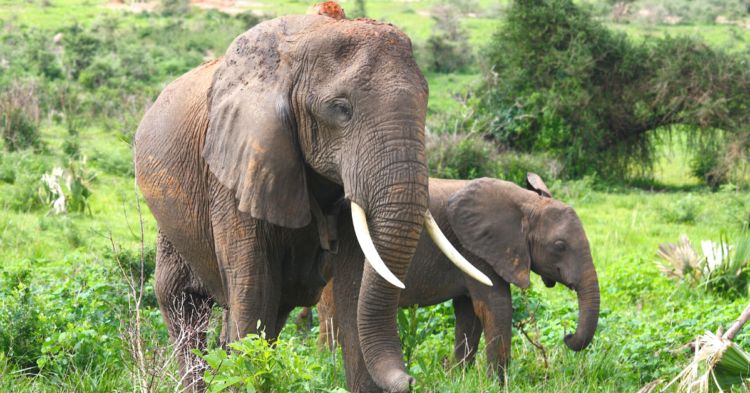When Sudan, the last male northern white rhino, died in 2018, it marked a low point for conservationists. It was a terrible thing watching a species become all but extinct and it would be easy to give in to the sense of doom that accompanied it. So many species out there are in trouble right now, it’s hard to know where to begin.
But there’s reason for hope. Tigers in India, for example, have rebounded nicely, as the government announced that its tiger population has doubled in 12 years, four years ahead of the target goal.
Kenya has some cause to celebrate on the conservation front as well.

To mark the occasion of World Elephant Day, officials in the African nation revealed that its elephant population had doubled since 1989, DW reported.
Back in 1989, about 16,000 elephants called Kenya home; now, in 2020, it’s home to more than 34,000, according to Kenya Wildlife Service Director John Waweru.
Officials credit anti-poaching efforts for helping the country’s elephant population grow.

Poaching has had a devastating effect on African elephants. In the 1970s, the continent had about 1.3 million elephants; now, it’s down to about 350,000.
“In the past couple of years, we have managed to tame poaching in this country,” said Najib Balala, Kenya’s Tourism Minister, at a press conference.
So far in 2020, just seven elephants have been poached in Kenya, DW reported, which is down from 34 in 2019 and 80 in 2018.
The rise in Kenya’s elephant population is particularly welcome because the same can’t be said for all of Africa.
The Great Elephant Census , published in 2016, sought to count all the elephants across 18 different African nations over a period of three years.
The results were bleak, showing that Africa’s wild elephant population had declined by 30% over just seven years, losing about 144,000 elephants in that time.
Kenya is hoping to turn the good news into even more good news in the future.
At the event, Balala also announced a new initiative.
“Today we are also launching the Magical Kenya elephant naming campaign, an annual festival whose objective will be to collect funds from the naming, to support the [Rangers’] welfare,” he said. “This year alone, about 170 elephant calves have been born.”
The Kenyan government’s hard stance against poaching has obviously paid off so it’s little wonder that they would continue to reinforce funding for the rangers who keep the elephants safe.

Among other measures, the Kenyan government has introduced much harsher punishments for those caught poaching or trafficking wildlife trophies such as elephant tusks.
And in 2016, President Uhuru Kenyatta ordered 105 tons of elephant ivory to be torched to send a message to would-be poachers.
h/t: DW
















































